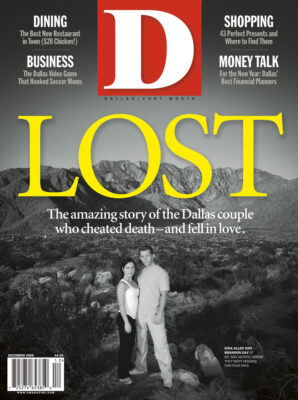Are city leaders trying to deceive citizens about cost overruns on the Trinity River Corridor program? Jim Schutze of the Dallas Observer thinks so. It appears that Dallas City Councilmember Mitchell Rasansky thinks so, too.
Rasansky, as is his custom, has only muttered complaints, following his usual pattern of implying that somehow, somewhere, someone in city government is trying to bamboozle him, without ever being quite sure who it is, when they did it, or how they pulled it off.
Schutze, on the other hand, did his reportorial legwork, identifying $72 million in the November $1.35 billion bond program that was specifically designated for Trinity projects. For example, under the general heading of flood control, Schutze found $6 million to be spent on a pipe extension to channel water for the Trinity lakes. He believes it was disingenuous of the city staff to lump that under flood control instead of placing it and other costs he found under the title of Trinity River Corridor.
Schutze’s suspicion is that it was a deliberate attempt to hide from voters how much the Trinity will cost. But the specific parks or roads or libraries or other flood control projects that require extra money weren’t identified either. The City Council decided how to allocate those dollars; the voters merely approved making the money available.
Schutze zeroed in on the Trinity because he thinks something underhanded is going on. I find the accusation bizarre. Nevertheless, he has raised a question about the very nature of representative government that’s worth examining.
In 1998, Dallas voters approved $246 million in bonds for the Trinity project, freeing up $900 million in federal and state funding. When Laura Miller was elected mayor in 2002, she launched a reevaluation of the project. The results were presented to the Dallas City Council in December 2003, and even though they entailed additional costs, they were unanimously approved. In March 2004, the City Council again reviewed the project and made additional changes; the total of all the revisions was estimated to run $114 million over the original bond proposal, with a possible $100 million more to come. The city identified possible funding sources as Dallas County, development districts along the Trinity, “future bond programs,” and private sources.
None of this was done in secret. The changes were presented at public forums. The City Council votes were in public meetings. The changes were reported in the media. D Magazine did a special edition on the revised plan and its costs. The documents and the numbers are up on the city’s web site. Mitchell Rasansky was present at every meeting where a vote was taken, and, in fact, no matter what he mumbles now, he voted in favor of the changes and for the additional funding.
Still, Schutze thinks the voters are being hoodwinked on the project. If they think so, they’ve had plenty of opportunities to show it.
In 1997, 1999, 2001, and 2003, the voters elected—or, in the case of some members, reelected—a City Council that is overwhelmingly supportive of the Trinity project. In 2003 and 2004, that council amended the project and decided to spend more money. In 2005, the voters again elected the council. With this endorsement, the council added the Trinity items to the bond proposal. Every step was on the record. Which, come to think of it, is exactly where Schutze found it.





